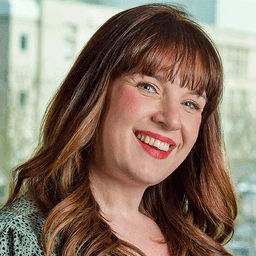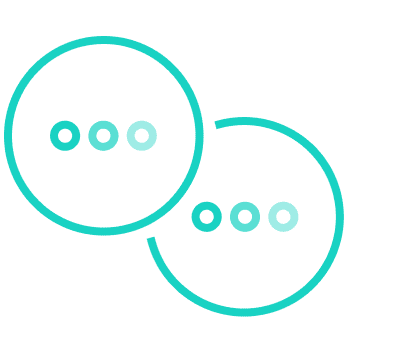In recent years, the concept of allyship has gained significant attention, especially in the context of social justice and equality. However, not all forms of allyship are created equal. Many individuals have adopted performative gestures, such as changing their profile pictures on social media or making superficial statements of support, without taking any meaningful actions to challenge harmful behaviours or support marginalised communities. These passive and performative acts, while easy to execute, require no real sacrifice, effort, or commitment to change.
Active allyship, on the other hand, is a powerful and transformative approach that goes beyond mere symbolism. Active allies support people, not just through words, but through tangible actions. This means learning, listening to others, understanding that your own experiences are not universal, and taking physical steps to intervene and advocate for change.
Being an active ally means using your privilege to amplify the voices of others. We interviewed Iain MacLeod, ED&I Consultant at Reed Talent Solutions, ahead of his talk at In-house Recruitment’s Diversity, Equity and Inclusion Conference 2025, in London, on Wednesday 2 July 2025 which touches on the topic.

Q: What are some common pitfalls or missteps well-meaning allies make, and how can they course-correct?
A: Number one is the fear of doing things wrong. Now, we can't let that fear stop us from taking action. A lot of people are worried about being 'cancelled.' They're worried about saying the wrong thing and try to avoid the subject altogether. But the fact is, you can't avoid it. Our society is diverse. Diversity isn't something we're bringing in, it's a fact.
Everyone's experiences are different. We all have a different frame of reference, and that's informed how we make judgments, how we live our lives, and our thought processes.
So, the first pitfall I see is people just being scared to get things wrong. Getting things wrong is how we learn through experience. Obviously, we should always do our best to get things right, through doing our research but intent is very important. If you are genuinely trying to make a difference then we are going to make mistakes, and that takes us to the second pitfall, which is taking correction as an attack.
By that, I mean we need to get used to being told, "Actually, that's not correct," or "That isn't the best way to frame something or refer to it."
An excellent example I saw was a trainer within one of our clients. I was lucky enough to be invited to some of their diversity and inclusion training. This trainer, a black woman married to a white man, had her mother-in-law refer to her as "coloured." She corrected her mother-in-law using a method called the UHT method, which stands for understand, however, therefore.
She said: "I understand when you were growing up, 'coloured' was seen as the polite term to use” – that was our U. “However, nowadays it's seen as a bit outdated, and some people actually take offence to it. I know you didn't mean that, but this is the reality of the world at the moment.” – so, that was her H. And then her T, the therefore, “just call me black. I'm a black woman, and that makes me happy."
Her mother-in-law took that so well because she approached her with understanding. She wasn't telling her off; she was just helping her do better. And that's what we need to keep in mind. If you're corrected, it's not someone having a go at you or telling you that you're wrong. It's helping you to do better.
The last pitfall I'd like to draw attention to is centring yourself. Allyship should never centre yourself, you need to centre the community that you are showing allyship to. Sometimes your voice isn't the voice that needs to be heard, and sometimes the best thing you can do is lift others' voices.
Allyship is about supporting and amplifying the voices of those who need it most, not making it about yourself.
Q: How do you see the role of allyship evolving in global human rights or equity movements?
A: Allyship is becoming more and more important. The global context we've got at the moment is that 2025 has been tough for marginalised communities.
We all know everything that's going on in the United States, and it's often said that when the US coughs, the UK and Europe catch a cold. We can't ignore these global situations. People who are anti-DE&I (diversity, equity, and inclusion) and see it as the root of all evil are getting louder and more emboldened. Allies need to step up to keep the conversations simple, true, and human.
We need allies to stand alongside marginalised communities because allies generally have the power. They come from communities that are outside of those margins and really have the power to lift up voices and bring people forward in these conversations.
When we're talking about anything to do with sociology, we're looking at a cyclical movement. We see the same stories again and again, just in different flavours. The civil rights movement would not have had the success it had without allies behind it. The same goes for the fight for same-sex marriage; that wouldn't have happened without allies. The fact is, marginalised communities cannot affect change on their own. It only happens when there is true allyship. So, the role of allies becomes massively important when you put that to the forefront of your mind.
Q: What role does intersectionality play in practicing meaningful allyship?
A: If you're not looking at your allyship intersectionally, you're not really looking at allyship.
Intersectionality is about looking at the whole person rather than one aspect of them. Nobody is just one thing. Where different marginalised identities are layered on top of each other, that layering and the specific personality that is built from that is what we're talking about with intersectionality.
For example, we might be talking about the experiences of women. When we look at specific types of women, we will see there are greater inequalities for those that have intersecting identities. Black women can face both sexism and racism. Disabled women face sexism and ableism. A black disabled woman may have to deal with three different forms of discrimination. Throw in the fact that she may also be a Muslim, and you have four different intersecting identities that mean the barriers she faces are very different from those faced by a white, non-disabled woman.
If we're not looking at intersectionality, we're just treating all women, all black people, or all disabled people as the same.
Intersectionality is what makes us unique - all those different identities together. If you're not looking at that, you're trying to massively simplify things and only help the dominant identity within any characteristic. For example, if you're treating the LGBTQ+ community as one homogeneous group, the likelihood is you're only looking at cisgendered, white, gay men. As a cisgendered white, gay man, I think we've maybe had the platform for far too long. We need to be listening to the experiences of queer black people, women, bisexuals, asexuals, trans men, and trans women. We need to be looking at all these various intersecting identities to make sure we are helping everybody, not just the dominant identity within that group.
Q: How can organisations ensure they’re fostering environments where allyship is not only encouraged but effective?
A: Training is going to be key to ensuring that allyship is not only encouraged but effective. People are often not taught how to manage and lead. Many managers are in their roles because they're really good at their job, and the only way for promotion is into management. For example, an excellent accountant might be promoted to manage an accountancy team. But if they don't receive management training, they won't be able to do the job effectively. The same is true with allyship.
If you're not telling people the steps that they need to take to be active allies, they won't be able to step up. It's very easy to say, "Just do the right thing," but everyone has a different idea of what the right thing is, and nobody has the experience of the communities they're not part of. Training, sharing stories, and educating about different communities and the barriers they face are key to making sure people have the tools to step up and be allies.
Q: Have you encountered resistance to allyship efforts at the institutional level? How do you navigate that?
A: When discussing allyship at the institutional level, we need to consider two types: individual organisations and systemic issues. Within the UK, there is definite resistance to allyship at the systemic level, with the institution being the country itself. Navigating this resistance is very difficult because there are many people with varied opinions - some informed by fact, some by media, some by lies, and some by personal experience. It's challenging to navigate this, and there is no golden ticket or golden goose to fix everything at once.
However, every little step we can make is valuable. For example, if you're a man and you call out inappropriate comments or objectification of women, just saying to your friends “You’re better than that” and that it's not acceptable, reminding them that the woman they're objectifying is someone's sister, daughter, or her own person. That is a brave step. These small actions are important because they challenge behaviours and hold people to a higher standard. While we won't fix everything overnight, we need to make progress faster than we currently are.
The lessons we learn from addressing systemic issues can be applied within organisations. Having robust methods for people to report behaviour and address it is crucial. HR and leadership need to be well-trained to follow up on reports and address issues in ways that aren't just seen as disciplinary. While there will be times when disciplinary action is necessary, it's important to address behaviours in ways that aren't accusatory and help people improve while ensuring the safety and sense of belonging for marginalised groups.
Organisations should have documented processes for dealing with these issues and ensure that their zero-tolerance policies are truly zero tolerance. This means that if a top employee does something racist, sexist, homophobic, transphobic, Islamophobic, or anti-Semitic, they must face the consequences, regardless of their status.
Q: On 2 July, this year, you will be talking on, ‘Active allyship: lessons from United Nations and beyond’, what will your talk cover and why should people attend?
A: I was lucky enough to be part of UN Women UK's digital delegation for the Commission on the Status of Women earlier this year. This delegation was composed of passionate individuals from various sectors across the UK, including businesses and NGOs, all committed to advancing the rights of women and girls globally. As a man, it was an absolute honour to be part of this group and to be surrounded by amazing women who are making a significant impact. These women were intersectional, intentional, and incredible allies across different characteristics, and I learned a great deal from them.
This experience inspired me to look for other examples of excellent allyship around the world. I will be exploring stories of allyship in action and examining how both organisations and individuals can take these lessons and implement them, not just in their professional roles but in their daily lives, to truly make a meaningful and measurable difference. I hope to see as many people as possible engaging with these stories and applying these principles to foster a more inclusive and supportive environment for everyone.
Iain will be speaking at In-house Recruitment’s Diversity, Equity and Inclusion Conference 2025, in London, on Wednesday 2 July 2025, find out more about the event here.





